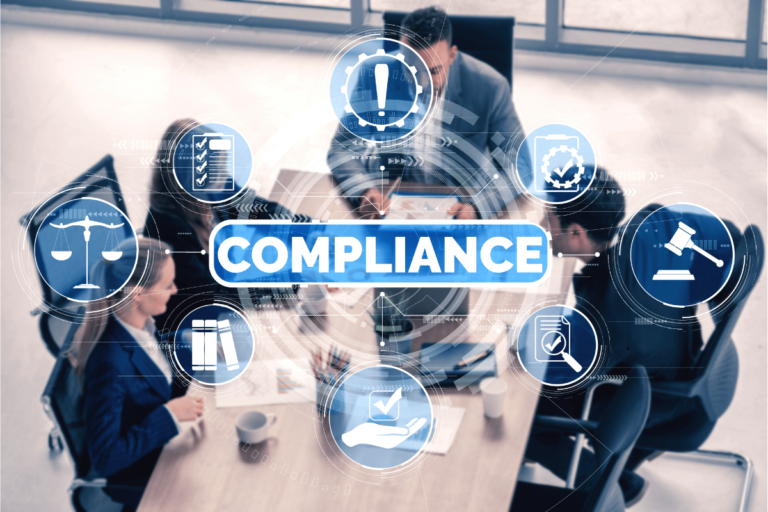Rumination Destroys Resilience: Break the Cycle Now
In the realm of mental wellness, the detrimental impact of rumination on resilience cannot be overstated. The incessant replay of negative thoughts not only hinders one's ability to bounce back from challenges but also saps away mental fortitude.
By recognizing the destructive nature of rumination and embracing proactive strategies, individuals can break free from this cycle and fortify their resilience.
This discussion will shed light on the insidious effects of rumination, offer practical techniques to combat it, and underscore the importance of fostering resilience in today's fast-paced world.
Key Takeaways
- Rumination hinders resilience by fostering stress and burnout.
- Mindful leadership and detachment help break the cycle of rumination.
- Recognizing and redirecting attention from rumination reduces its impact.
- Practice letting go of negative emotions to strengthen resilience.
Understanding Rumination and Its Impact
Rumination, characterized by the repetitive dwelling on negative thoughts, has a profound impact on individuals' mental well-being, leading to increased stress and decreased resilience levels. Cognitive restructuring plays a vital role in combating rumination by challenging and changing these negative thought patterns. By reframing thoughts in a more positive or realistic light, individuals can reduce the tendency to ruminate.
Emotional regulation is equally crucial in managing rumination, as it helps individuals navigate and process their emotions effectively, preventing them from becoming overwhelming and consuming. Developing strategies to regulate emotions, such as mindfulness techniques or seeking support from others, can aid in breaking the cycle of rumination and promoting mental well-being.
Recognizing the detrimental effects of rumination is the first step towards fostering resilience and improving overall mental health.
Strategies for Building Resilience
Building resilience involves implementing strategic approaches that empower individuals to navigate challenging circumstances with strength and adaptability. Mindfulness practices and stress management are key components in building resilience. Mindfulness practices help individuals stay present and focused, reducing the likelihood of getting caught up in negative thought patterns. Stress management techniques allow for a better response to stressors, preventing them from overwhelming one's resilience. Here is a table summarizing some effective strategies for building resilience:
| Strategies for Building Resilience |
|---|
| Practice mindfulness daily |
| Engage in stress-reducing activities |
| Seek social support for resilience |
Techniques to Reduce Stress
Implementing effective techniques to reduce stress is essential for maintaining mental well-being and enhancing overall resilience in the face of challenging circumstances. Stress management plays a crucial role in preventing burnout and improving one's ability to cope with adversity.
By incorporating relaxation techniques into daily routines, individuals can effectively combat the negative impacts of stress on their mental health. Practices such as deep breathing exercises, meditation, yoga, or mindfulness can help in reducing stress levels and promoting a sense of calmness.
It is important to recognize the signs of stress and actively engage in activities that promote relaxation and well-being. By developing a personalized stress management plan, individuals can build resilience and navigate through difficult situations with greater ease.
Join Resilience Building Webinar
Participation in the upcoming webinar on resilience building is a valuable opportunity for individuals seeking to enhance their personal and team resilience amidst challenging circumstances. This webinar will offer practical strategies to improve team resilience and crisis leadership skills.
Understanding how to navigate crises effectively and lead teams with resilience is crucial in today's fast-paced and unpredictable environment. By joining this webinar, participants can gain insights on how to cultivate a resilient mindset both personally and within their teams.
Learning from experts in the field will provide valuable resources and guidance on building resilience, managing stress, and fostering effective crisis leadership. Investing time in this webinar can lead to enhanced team effectiveness and better outcomes in times of crisis.
Additional Stress Reduction Strategies
Incorporate proactive measures to interrupt rumination patterns and enhance stress reduction in daily routines. Engaging in physical actions and focusing on worry reduction are essential strategies to break the cycle of rumination. Consider the following additional stress reduction techniques:
- Take a brisk walk or engage in a workout to release tension and clear the mind.
- Practice deep breathing exercises to promote relaxation and reduce anxiety.
- Engage in a hobby or activity that brings joy and distracts from negative thoughts.
- Connect with a supportive friend or loved one to share concerns and gain perspective.
Mindful Leadership Practices
Mindful leadership practices play a crucial role in fostering resilience and enhancing organizational effectiveness during challenging times. Embracing mindful leadership benefits organizations by promoting self-awareness, emotional intelligence, and the ability to navigate uncertainty with clarity.
Leaders who practice mindfulness exhibit better decision-making skills, improved communication, and a deeper understanding of their team's needs. However, mindful leadership also comes with challenges, such as maintaining consistency in practice, especially in high-stress situations, and overcoming resistance to change within the organizational culture.
Overcoming these challenges requires dedication, ongoing practice, and a commitment to personal growth. By prioritizing mindful leadership, organizations can cultivate a resilient environment that thrives even in the face of adversity.
Controlling Attention and Distractions
In the quest for enhanced productivity and mental clarity, mastering the skill of controlling attention and minimizing distractions is paramount. Effective attention management and distraction control are crucial in breaking the cycle of rumination and enhancing resilience.
To achieve this, consider the following strategies:
- Prioritize tasks based on importance and urgency
- Implement time-blocking techniques to focus on specific activities
- Minimize multitasking to avoid splitting attention
- Create a conducive work environment free from unnecessary interruptions
Maintaining Detachment for Perspective
To gain a clearer understanding of one's circumstances and foster resilience, it is essential to maintain a sense of detachment for gaining valuable perspective. Detachment benefits individuals by allowing them to step back from their emotions and thoughts, enabling a more objective view of situations.
By practicing detachment, individuals can observe their circumstances with a level of distance that facilitates a more rational and less emotionally charged assessment. This technique helps in reducing the intensity of reactions, providing space for reflection and considered responses.
Perspective techniques involve acknowledging one's thoughts without getting entangled in them, which aids in preventing rumination and fostering a more balanced outlook. By maintaining detachment, individuals can cultivate resilience by approaching challenges with a clearer and more composed mindset.
Letting Go of Negative Emotions
Maintaining a sense of detachment for gaining valuable perspective can pave the way for individuals to effectively let go of negative emotions and cultivate resilience in the face of challenges. When it comes to emotion release and self-care, individuals can benefit from the following:
- Engaging in physical activities to release pent-up emotions
- Practicing mindfulness techniques to let go of negativity
- Journaling to express and process negative emotions
- Seeking support from loved ones or a professional for emotional release and healing
Observing Thoughts Without Fixation
Utilizing introspective awareness can empower individuals to observe their thoughts without becoming fixated on them, fostering a deeper understanding of their mental processes and promoting emotional resilience.
Mindful observation allows for a clearer perception of thoughts, leading to enhanced mental clarity. By cultivating thought awareness without getting entangled in them, individuals can develop emotional detachment from their thoughts. This emotional detachment creates space between thoughts and reactions, enabling a more objective viewpoint.
Through this practice, individuals can learn to acknowledge thoughts without being consumed by them, thereby breaking the cycle of rumination. This process of observing thoughts without fixation encourages a healthier relationship with one's mind, fostering resilience and empowering individuals to navigate challenges with greater ease.
Conclusion
In conclusion, the detrimental effects of rumination on resilience are undeniable.
By implementing mindfulness, attention control, and emotional detachment techniques, individuals can break free from the cycle of negative thoughts and pave the way for enhanced mental fortitude.
Through proactive measures and a commitment to self-care, one can navigate life's challenges with greater ease and resilience.
Join us on this journey of self-discovery and growth as we strive to overcome the insidious grip of rumination.







